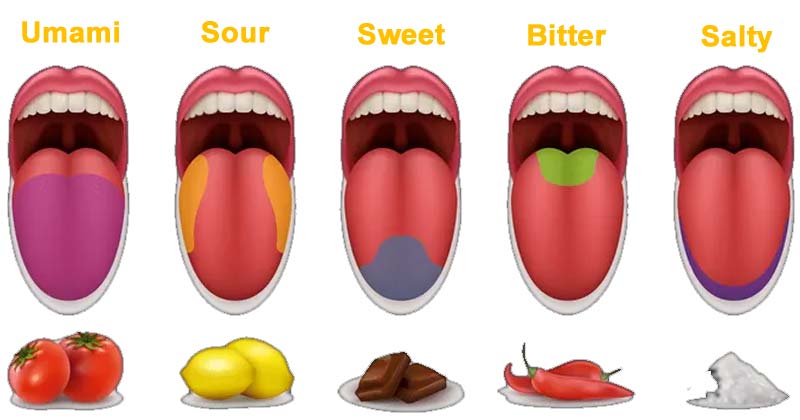The human tongue can distinguish between five different tastes. In addition to sweet, sour, salty and bitter, a fifth flavor has now been discovered in Japan. “Umami” is the “hearty” taste that is reminiscent of meat. Read here to know what is really behind it.
What is Umami?
In 2000, US scientists at the Miami School of Medicine discovered the umami-related taste receptors on the tongue. Umami describes a taste, which is mainly mediated by the amino acid glutamic acid. Esters and salts of glutamic acid are referred to as glutamates. The latter is known as a flavor enhancer.

Umami substances such as glutamate are mainly used in Asian cuisine for the addition of algae in soups or in the production of ready meals. People who eat only unprocessed foods may find the umami taste rather annoying and respond to headaches, palpitations, or nausea. However, this only occurs with excessive consumption of glutamates.
What is the fifth Taste?
Umami in foods that gives you the sensation of furriness on tongue and induces salivation. It stimulates the throat and back of the mouth.
Asian dishes often use umami substances. But not only in the Asian kitchen, also in many well-known food one finds umami-conveying substances. They are found, for example, in ripe tomatoes, mushrooms, in meat and other protein-rich foods, in Parmesan and seasonings such as soy sauce, broth or yeast extract.

The Indian foods that give you the taste of Umami are Paneer, yogurt, chana dal, urad dal, cashews, walnuts and almonds. ‘Tej Patta’ is supposed to increase the umami in food. MSG is commonly added to foods to get the flavor, texture and taste of Umami.
The treachery of Umami is that it tastes good. Who does not love the typical fried noodles from Asia? Who does not like Parmesan over spaghetti? Even breast milk contains umami-mediating substances.
Conclusion: Umami-mediating substances are harmful to health only in excess. You do not have to worry when they are consciously consumed. If you too want to know how Umami actually tastes, the best example we can give you is the taste of Maggi Masala which has MSG.


